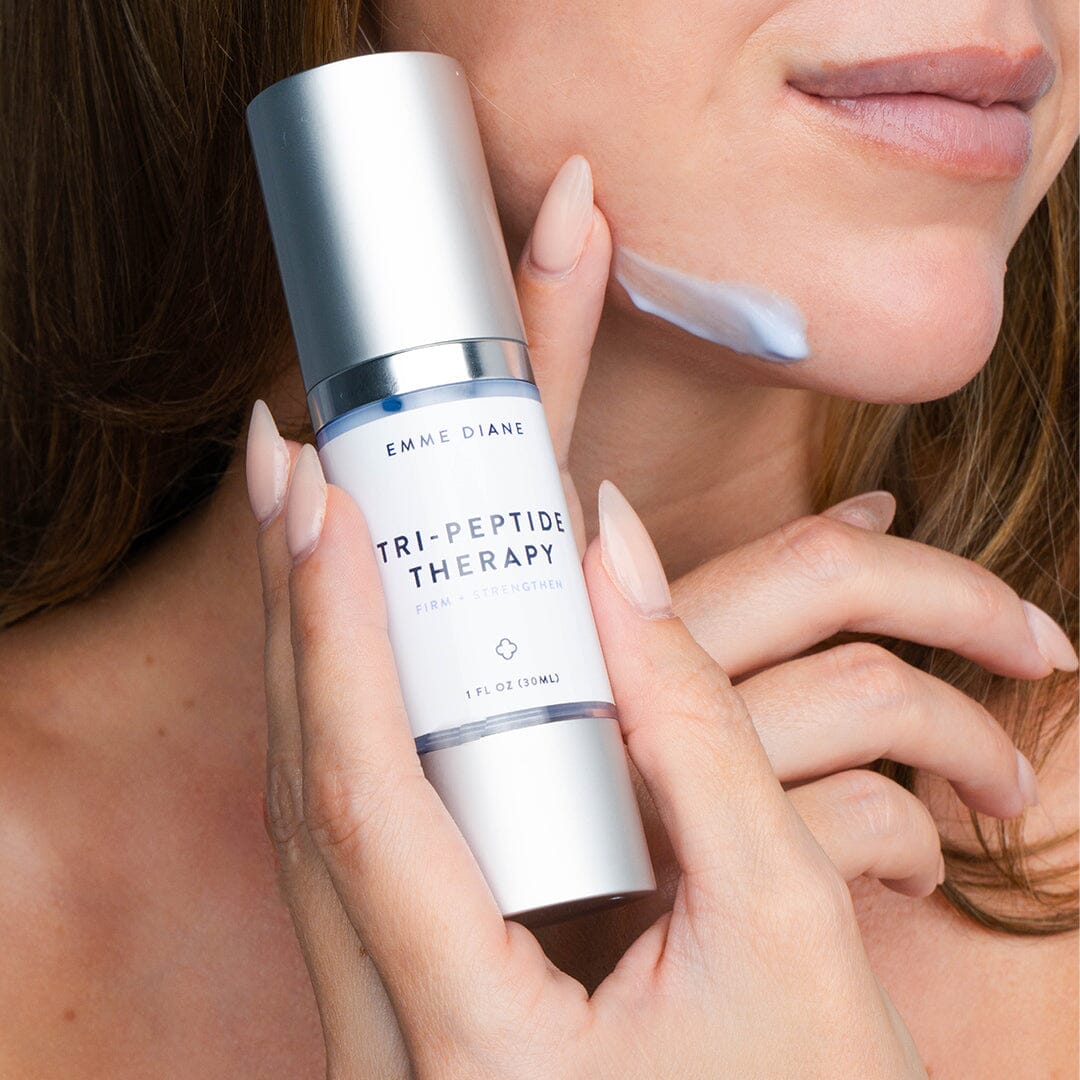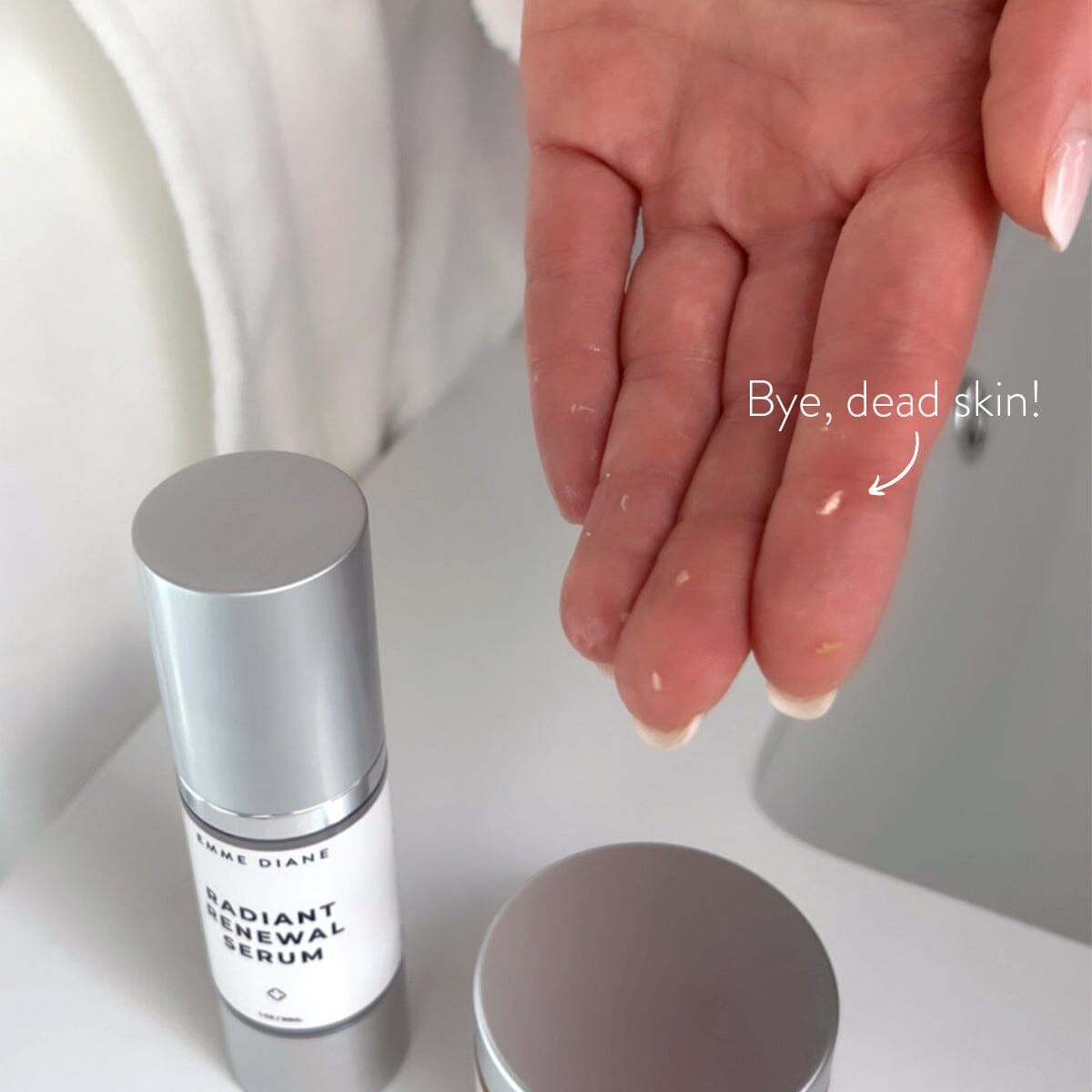Is Peanut Butter Contributing to Your Breakouts?
by Emily Linehan on March 25, 2020
*Updated June 24, 2022
Though it may be heartbreaking to hear, peanuts and peanut butter are huge triggers for those of us with acne. There are several reasons peanuts should be avoided (or better yet, eliminated) from the diet if you want to stay consistently clear. Here are a few of the negative effects peanut butter can have on your skin -
Omega-6 Fatty Acids
Peanut butter is rich in omega-6 fatty acids, which are generally responsible for triggering inflammation and acne. The body needs omega-6s, however it is crucial to get the right balance of omega-6s (pro-inflammatory) and omega-3s (anti-inflammatory), which is a recommended ratio of 1:1. Unfortunately, many Americans are getting 15-16 times more omega-6 than needed. Too much omega-6 can lead to an inflammatory state, which in turn exacerbates acne and accelerates the aging process.
It’s not just the peanuts in peanut butter that are causing the problem either. Unfortunately peanut butters tend to be filled with vegetable oils such as canola, sunflower, and soybean oils that are also high in omega-6s!
Peanut Agglutinin
Peanuts contain a lectin (a type of protein) called peanut agglutinin. Since lectins are difficult for the body to digest, they can often lead to "leaky gut syndrome". This creates gaps between the gut cell walls allowing toxins to enter the bloodstream, which activates an immune response that causes inflammation, resulting in acne. By doing this, your immune system becomes compromised which actually weakens your ability to fight off acne-causing bacteria, making your acne and breakouts worse.
Sugars and Additives
Most peanut butters contain sugar and additives like hydrogenated oils which are two of the worst foods for acne. In fact, a 2012 study found that high sugar consumption contributes to acne risk. This is because when sugar or high glycemic index foods are consumed, the sugar absorbs very quickly into the bloodstream, resulting in increased blood sugar levels. The body responds with a burst of inflammation and begins to produce a hormone called IGF-1 to help restore balance. Unfortunately, this hormone also increases testosterone, which results in an overproduction of sticky oil in the pores and excess cell turnover (congestion), contributing to acne breakouts. Not only is sugar a big trigger for acne, an overabundance of sugar causes an inflammatory response in the skin called Advanced Glycation End which accelerates the aging process. You can learn more about how sugar affects the skin here.
As mentioned above, peanut butters also tend to contain hydrogenated oils, which are rich in omega-6s and lead to inflammation.
Since sugar and hydrogenated oils lead to inflammation, glycation (aging), clogged pores, an overproduction of sebum (oil), and a compromised immune system, it’s best to avoid foods that contain high amounts of either, like peanut butter.
Alternatives
Due to these reasons, if you struggle with acne it’s best to skip the peanut butter. The great news is there are acne-safe alternatives such as almonds and walnuts, almond butter, and other nut/nut butters. Macadamia nut is the best replacement due to it not containing any omega-6, however for something that is closer to peanut butter, my favorite is Barney Butter Smooth Almond Butter.
xoxo, Emm


